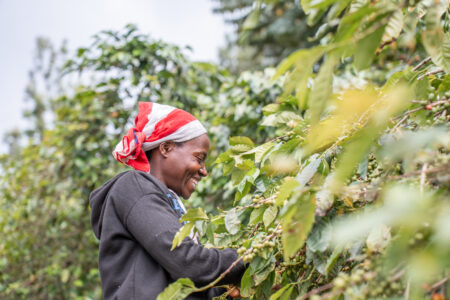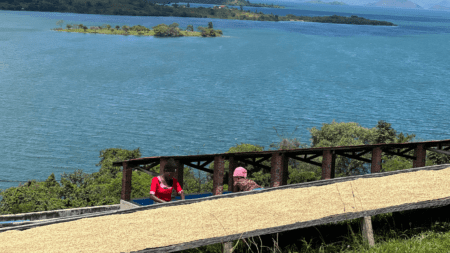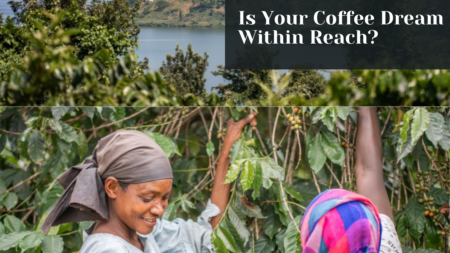Kawah coffee’s 7 powerful Sustainable Farming Practices
Kawah Coffee is a specialty coffee brand from a family farm in Western Rwanda, committed to powerful sustainable farming practices that prioritize the health of their land, their coffee plants, and the surrounding ecosystem. This commitment to sustainability is essential for the long-term success of the farm and the livelihood of the local community. Here are 7 of the sustainable farming practices used by the family farm that produces Kawah Coffee.
Organic and Shade-grown Coffee
Kawah Coffee is grown organically without the use of synthetic pesticides or fertilizers. This is beneficial for both the environment and the health of the coffee plants. The farm also practices shade-grown coffee, which means that the coffee plants are grown under the shade of trees. This not only protects the coffee plants from direct sunlight but also provides a habitat for birds and other wildlife. The shade also helps to prevent soil erosion and conserves water, reducing the need for irrigation.
Natural Fertilizers and Composting
The farm uses natural fertilizers such as compost, which is made from coffee pulp, animal manure, and other organic matter. Composting is an effective and sustainable way to enrich the soil with nutrients and promote healthy plant growth. This practice also reduces the amount of waste produced on the farm and eliminates the need for chemical fertilizers.
Conservation Efforts
Kawah Coffee is committed to conserving the natural ecosystem surrounding their farm. The family has set aside a portion of their land as a nature reserve, where they have planted native trees and vegetation. This provides a habitat for local wildlife, including birds, monkeys, and other small mammals. The farm also works with local conservation organizations to promote reforestation and environmental education in the community.
Water Conservation
Water is a precious resource in Rwanda, and Kawah Coffee is committed to conserving it. The farm uses a drip irrigation system to reduce water consumption and prevent water waste. The coffee plants are also planted in a way that maximizes water retention and reduces the amount of water needed for irrigation. The farm also practices soil conservation, which helps to prevent erosion and protect the soil’s ability to retain moisture.
Biodiversity conservation
The farm is committed to preserving and enhancing the biodiversity of the surrounding ecosystem. They plant a variety of shade trees and other crops alongside their coffee plants, creating a more diverse and resilient ecosystem. They also protect and conserve the natural habitats of birds, insects, and other wildlife that play an important role in pollination and pest control.
Fair trade practices
In addition to their sustainable farming practices, Kawah Coffee is committed to fair trade practices that prioritize the wellbeing and economic empowerment of their farmers and the local community. They provide fair wages, healthcare, and education for their farmers, and also invest in local infrastructure like schools and water systems.
Eco-friendly Packaging
Kawah Coffee is committed to reducing their carbon footprint and uses eco-friendly packaging for their coffee beans. They use biodegradable bags made from renewable materials that can be composted after use. This reduces the amount of waste produced by the farm and helps to reduce the overall impact on the environment.
We are committed to sustainable farming practices that prioritize the health of our land, our coffee plants, and the surrounding ecosystem. By growing organic and shade-grown coffee, using natural fertilizers and composting, conserving the natural ecosystem, practicing water conservation, and using eco-friendly packaging, the family farm is setting an example for sustainable coffee farming practices. By prioritizing sustainability, we are not only protecting the environment, but also ensuring the long-term success of our farm and the livelihood of the local community. These are Kawah coffee’s 7 powerful Sustainable Farming Practices and we are aiming to introduce more.










